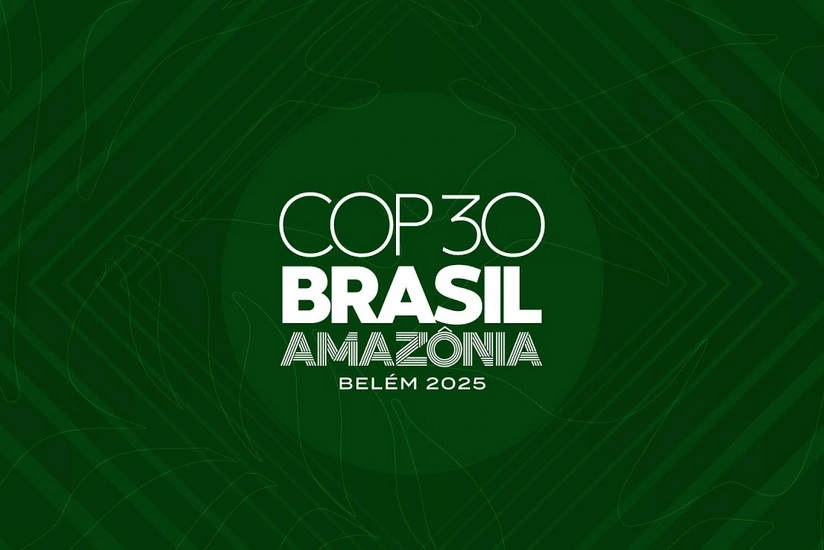COP30: Belém falls short of Baku's benchmark
- 17 November, 2025
- 14:54

The COP30 climate conference in Brazil has passed its midpoint, allowing for some preliminary assessments and comparisons with last year's conference in Baku. Although the Belém conference is still ongoing, it is already clear that it will not match the scale or impact of Baku.
Last year, Azerbaijan undertook extensive preparations at every level to ensure strong participation of countries in COP29. Beyond representation, Baku set a high bar for tangible outcomes, transforming the conference from a two-week gathering into a platform where critical climate decisions were made, shaping the agenda for years to come. Remarkably, Azerbaijan accomplished this with less than ten months of preparation-a true test of organizational skill and flexibility, which the country passed with distinction. This approach demonstrated that Azerbaijan views climate change not as an isolated environmental issue, but as a global challenge closely linked to the economy, society, and sustainable development.
By contrast, such meticulous preparation was not evident on the part of Brazil at COP30. The summit in Belém has seen low participation from world leaders-only ten heads of state and government attended, compared with more than 50 at Baku. The Baku summit brought together a wide array of leaders, from the presidents of Türkiye, Uzbekistan, and Kazakhstan to the UK Prime Minister, the Belgian Prime Minister, and the presidents of Mongolia, Bolivia, and Mauritania, as well as the King of Jordan.
This disparity is not merely geographic-though Brazil is far from the global center-it also reflects Azerbaijan's reputation as a reliable and respected international partner since its independence. Another notable difference is that the United States did not send a delegation to Belém this year, whereas the US actively participated in Baku in 2024.
Discussions in Belém have largely been characterized by broad statements about the climate problem, with few concrete proposals for solutions. Consequently, the main outcome of COP30 may end up being the selection of the host country for the next climate conference, with Australia and Türkiye competing to host in 2027.
COP30 has already faced negative headlines. The number of fossil fuel lobbyists exceeded 1,600-outnumbering the delegations of nearly all countries except the host, Brazil. Heavy seasonal rains caused flooding at the conference venue, reportedly forcing some delegates to wade barefoot to meeting halls. The conference was also disrupted by a protest from indigenous groups demanding measures to combat climate change and protect forests.
A comparison of media coverage between Baku and Belém is telling. When Baku was announced as the host of COP29 in December 2023, international media launched a campaign questioning Azerbaijan's suitability, citing its fossil fuel production and alleged human rights issues. In contrast, coverage of Belém has been largely factual and non-critical, focusing on flooding as a symbolic reminder of the climate crisis rather than as a critique of Brazil's organization. This contrast highlights how a systematic approach and careful planning-even under tight deadlines-can produce ideal conditions for a successful global event, as Azerbaijan demonstrated last year.
It is appropriate here to draw a parallel between Baku and Belém in terms of how international media covered the climate conference before and during the event. Since December 2023, when Baku was announced as the host of COP29, a large-scale smear campaign has unfolded in foreign media claiming that Azerbaijan did not deserve to host such an event-citing its status as a fossil fuel producer, alleged human rights concerns, and so on. Some even argued that COP in Baku would merely be a "transitional" conference - from Dubai to the "main act" in Brazil in 2025.
This year, nothing of the sort has been observed regarding Belém: minimal criticism and no media bias. For example, global media have been reporting on flooding caused by seasonal rains in the region-with corridors and pedestrian areas of the summit site submerged. However, this is not presented as criticism, but rather as a symbol of the times - a reminder that the climate crisis is already here.
Yet this contrast inadvertently underscores an important point: with a systematic approach and competent organization, even within a short timeframe, it is possible to create ideal conditions for successfully hosting an event of global scale - precisely what Azerbaijan achieved one year ago.
To ensure continuity from Baku to Belém, Azerbaijan initiated the development of a roadmap to extend and build upon the COP29 decisions. Yet the key achievements remain those reached in Baku.
COP29 exceeded expectations. Every agreement required prolonged negotiations with resistant delegations. The conference featured a comprehensive thematic program, with each day dedicated to a focus area-climate finance, energy and innovation, health, education, youth policy, and children's rights. COP29 became a forum of action, not just promises. Long-stalled issues were advanced in the first days of the conference, including consensus on Article 6 of the Paris Agreement, governing international carbon trading.
The summit"s landmark achievement was a new global climate finance package. After two weeks of negotiations, parties approved the New Collective Quantified Goal (NCQG), tripling support to developing countries from $100 billion annually to $300 billion by 2035. A phased mechanism for scaling public and private investments up to $1.3 trillion annually was also established, targeting climate resilience, clean energy transition, green technologies, and job creation. Decisions were made on the Loss and Damage Fund as well.
Azerbaijan's chairmanship showcased resilience and negotiating skill under pressure, delivering agreements that had eluded the international community for nearly a decade. The outcomes of COP29 were promptly dubbed the Baku Breakthrough.
In Belém, Brazil plans to launch a single initiative: the Tropical Forests Forever Facility (TFFF), aimed at forest conservation. Beyond that, COP30's results appear limited.
Whatever the final outcomes, one conclusion is already clear: Belém has a long way to go to match the Baku Breakthrough, and it seems unlikely that such a landmark achievement will be replicated in the near future.
